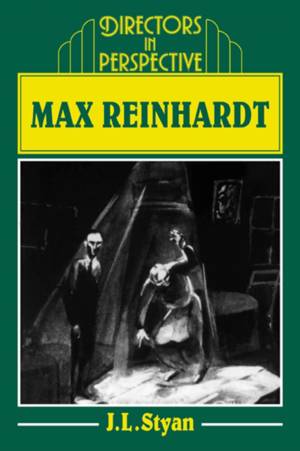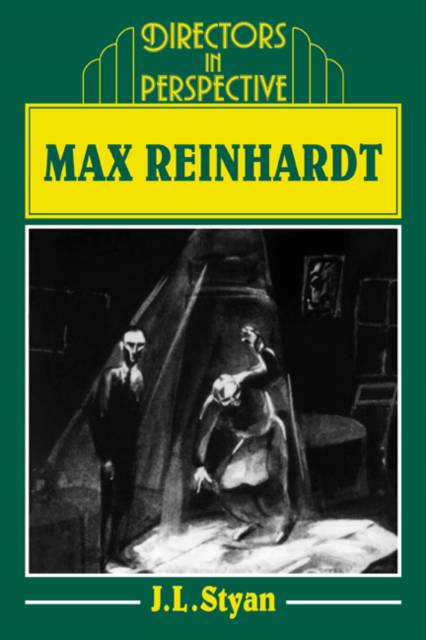
- Afhalen na 1 uur in een winkel met voorraad
- Gratis thuislevering in België vanaf € 30
- Ruim aanbod met 7 miljoen producten
- Afhalen na 1 uur in een winkel met voorraad
- Gratis thuislevering in België vanaf € 30
- Ruim aanbod met 7 miljoen producten
Zoeken
€ 60,95
+ 121 punten
Omschrijving
Max Reinhardt (1873-1943), one of the major theatre figures of the twentieth century, was among the first to establish the importance of the director in modern theatre. His fame outside Germany rests somewhat unfairly on his distorted image as producer of giant, Gothic spectacles staged in vast auditoria or cathedral squares. In this book Professor Styan is concerned to illustrate Reinhardt's astonishing versatility as director of more than six hundred productions, which together cover almost all the dramatic genres and all the major theatrical movements of the time. Professor Styan explains Reinhardt's place in the history of Austrian and German culture and world theatrical movements. Using contemporary reviews and the Regiebuch, or director's promptbook, he describes in detail the organization, performance and impact of some of the director's major productions: his symbolist interpretation of Ghosts and Salome; the expressionist experiment with plays by Wedekind, Strindberg, Sorge and Buchner; the Shakespeare sequence, including the classic A Midsummer Night's Dream; productions of Greek tragedy, Goethe, and the baroque spectacles such as Everyman, which together cover almost all the dramatic genres and all the major theatrical movements of the time. Professor Styan explains Reinhardt's place in the history of Austrian and German culture and world theatrical movements. Using contemporary reviews and the Regiebuch, or director's promptbook, he describes in detail the organization, performance and impact of some of the director's major productions: his symbolist interpretation of Ghosts and Salome; the expressionist experiment with plays by Wedekind, Strindberg, Sorge and Buchner; the Shakespeare sequence, including the classic A Midsummer Night's Dream; productions of Greek tragedy, Goethe, and the baroque spectacles such as Everyman.
Specificaties
Betrokkenen
- Auteur(s):
- Uitgeverij:
Inhoud
- Aantal bladzijden:
- 188
- Taal:
- Engels
- Reeks:
Eigenschappen
- Productcode (EAN):
- 9780521295048
- Verschijningsdatum:
- 30/06/1982
- Uitvoering:
- Paperback
- Formaat:
- Trade paperback (VS)
- Afmetingen:
- 152 mm x 229 mm
- Gewicht:
- 281 g

Alleen bij Standaard Boekhandel
+ 121 punten op je klantenkaart van Standaard Boekhandel
Beoordelingen
We publiceren alleen reviews die voldoen aan de voorwaarden voor reviews. Bekijk onze voorwaarden voor reviews.











